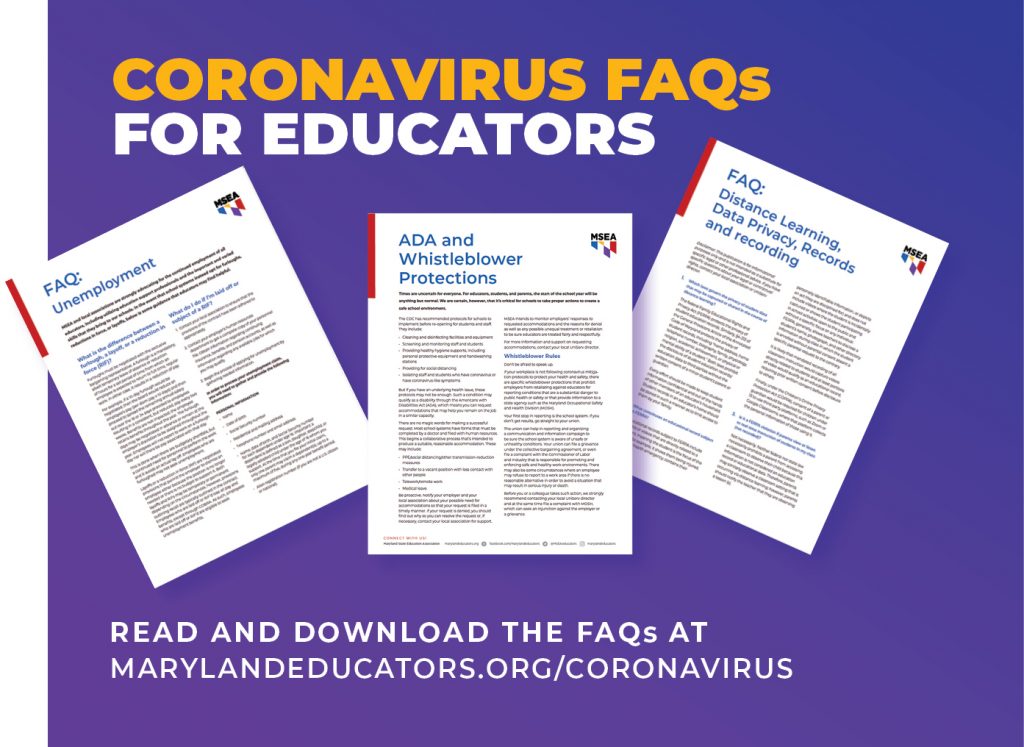Resources: Guides, Checklists, PD

MSEA’s Health and Safety Checklist MSEA strongly encourages every school to bring together a team of educators representing various job titles and parents to do a walkthrough of their individual school to complete our 10-page checklist, which reflects the advice of the Maryland Department of Health and Centers for Disease Control and is also endorsed by the Maryland PTA and Baltimore Teachers Union. Find the checklist and many more pandemic-related resources here.
NEA Coronavirus Reporting Tool NEA is tracking coronavirus cases and health and safety issues in school buildings across the country. The site provides two reporting functions: one is for confirmed coronavirus cases in schools where the reports are verified by NEA and posted on state-specific spreadsheets; the other is for health and safety concerns in buildings where reports are automatically routed to MSEA which then shares them with the local president and UniServ director. Find it here.
Coming soon: MSEA’s Curated Supports for Teaching and Learning This newly curated educator support guide includes professional development resources provided, created, and identified by MSEA to support virtual, in-person, and hybrid instruction during the pandemic.
The curated resources range in topic area from how to best engage students virtually to general strategies for using technology and from self-care for educators to appropriately addressing the social-emotional needs of students during this time. Find it soon at marylandeducators.org/coronavirus.
Upcoming: MSEA’s Becoming a Trauma Informed Educator MSEA’s 2020-2021 four-part series addressing student trauma began November 14, but members can still attend parts 2, 3, and 4. Look for more information here. Part 1 focused on becoming trauma-aware and what strategies educators can use in their work setting to mitigate childhood trauma. Subsequent modules are dedicated to becoming trauma-sensitive, becoming a trauma-informed ambassador and buffer, and creating a trauma-informed school. This program joins MSEA’s three-part How to Be an Anti-Racist Educator webinar series offered earlier this year. Learn more and watch the webinars here.
MSEA’s Educator Self-Care Toolkit Your interactions with students and their families mean that you often become aware of and help address students’ needs that stem from traumatic events in their lives. When teaching and supporting students experiencing trauma, the challenges that they bring and the empathy that you feel can begin to take a physical, mental, and emotional toll on you.
Check out this MSEA resource and take time to assess the source of your stress, and whether it is due to burnout—the cost of doing your job—or compassion fatigue—the cost of caring. Find the toolkit here.
NEA’s Educating through Crisis: Covid-19 NEA has collected helpful classroom resources, professional development, legal guidance, and advocacy opportunities to support educators with micro-credentialed classes in technology integration, socially just environments, and cultural competence. Find NEA-endorsed activities and resources for families and practical advice and information to help educators establish socially just practices in their classroom and school. Learn more here

